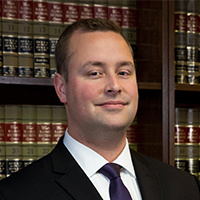Mc Connell Bankruptcy & Debt Lawyer, Illinois
Sponsored Law Firm
-
 x
x

Click For More Info:
-
PMJ PLLC
100 S State St Chicago, IL 60603» view mapBankruptcy & Debt Working Relentlessly For You
Patrick is the Founder of PMJ PLLC and has more than 20 years of experience.
800-901-4721
Thomas Laye
✓ VERIFIEDAccident & Injury, Divorce & Family Law, Estate, Bankruptcy & Debt, Business
Thomas was born and raised in Cherry Valley, Illinois. He attended Western Illinois University where he received his Bachelor’s in Law Enforcement a... (more)
Betsy Shaulis
Civil Rights, Banking & Finance, Collection, Personal Injury
Status: In Good Standing Licensed: 18 Years
Louis Adam Nack
Elder Law, Banking & Finance, Collection, Personal Injury, Insurance
Status: In Good Standing
Constance Augsburger
Civil Rights, Collection, Estate Planning, Federal Appellate Practice
Status: In Good Standing Licensed: 41 Years
Gary Flanders
Bankruptcy & Debt, Commercial Bankruptcy, Consumer Bankruptcy, Bankruptcy
Status: In Good Standing Licensed: 44 Years
FREE CONSULTATION
CONTACTDavid Francis Monteleone
DUI-DWI, Civil Rights, Collection, Medical Malpractice
Status: In Good Standing
Thomas R. Jakeway
Banking & Finance, Corporate, Contract, Credit & Debt
Status: In Good Standing Licensed: 21 Years
Lucinda Bugden
Traffic, Divorce & Family Law, Criminal, Bankruptcy
Status: In Good Standing Licensed: 33 Years
Dennis Lee Leahy
Immigration, State Appellate Practice, Social Security, Bankruptcy
Status: In Good Standing Licensed: 48 Years
 Patrick Jones Chicago, IL
Patrick Jones Chicago, IL Practice AreasExpertise
Practice AreasExpertise

